The conversations we’re hearing in Community in response to the Jan 26 ‘Australia Day’ public holiday.
As January 26 draws near, the debate about 'Australia Day' continues to stir up important discussions among the public. Perspectives such as 'Change The Date,' 'Not a Date to Celebrate,' 'Abolish the Date,' 'Day of Mourning,' and treating it as 'Business as Usual' represent some of the varied views being expressed. These perspectives are often connected, overlapping, and continue to evolve over time.
We’ve attempted to capture these different mindsets, and we continue to see this debate grow as we move closer to the date. .
So, what's it all about and where are you at?
Change The Date
Supporters of 'Change The Date' argue that January 26 is an inappropriate day to celebrate because it marks the arrival of the First Fleet in 1788. For them, the date doesn’t reflect the diverse, multicultural Australia we have today. Advocates for 'Change the Date' believe that a shifting ‘Australia Day’ to another date would allow us to create a national holiday that all Australians can celebrate, fostering unity and belonging for everyone in this country.
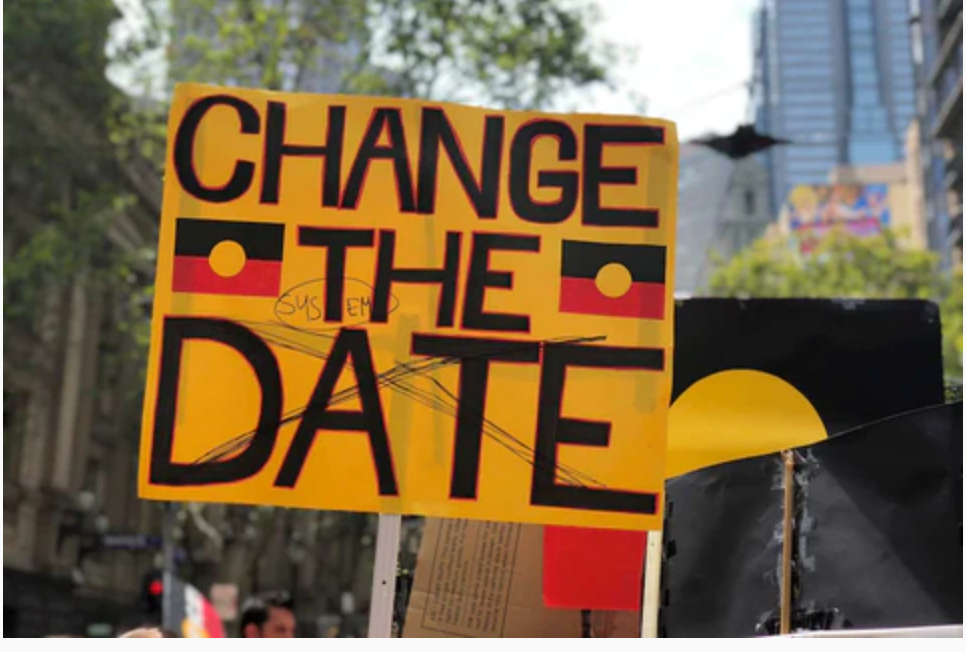
Not A Date To Celebrate
The 'Not a Date to Celebrate' movement focuses on January 26th as a day that should never be celebrated. For First Nations peoples, this date represents the beginning of genocide, the invasion of Country, and the disruption of culture, language and communities. Supporters of this campaign are calling on leadership from the government to stop treating this day as a national celebration altogether, as it continues to harm First Nations peoples, perpetuating a history of pain and trauma.
Instead of focusing on changing the date, the 'Not a Date to Celebrate' movement insists that we should stop and never celebrate on January 26 and that wider consultation is required about what a day of national celebration looks like in the future, if at all.
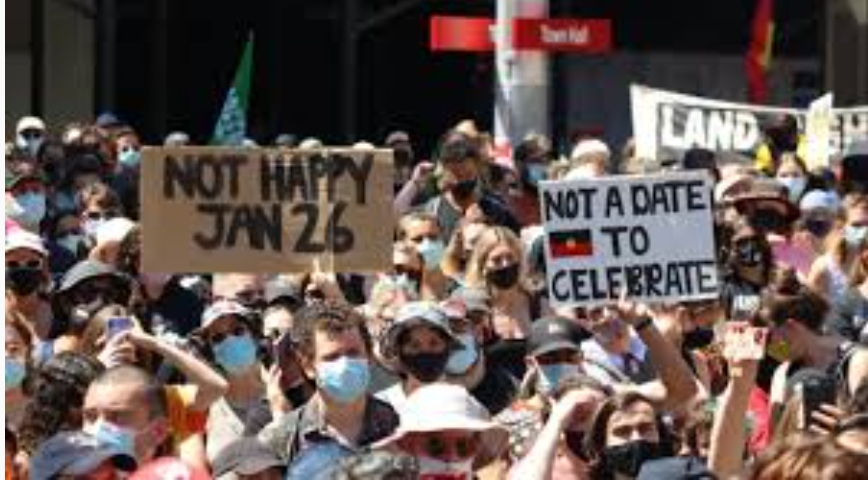
Abolish Australia Day
The 'Abolish the Date' movement believes that changing the date of ‘Australia Day’ is not enough, as there is no appropriate date to celebrate this colony. They argue that such a gesture would be purely symbolic and would fail to address the ongoing systemic issues faced by First Nations peoples as a result of colonisation and invasion. With high rates of child removal, incarceration, deaths in custody, and poor health and education outcomes, supporters of this movement believe that a shift in the date will not bring about true justice. In their view, social justice, treaty, systemic reform and truth-telling must come before any celebration.
Australia is the only colonised nation that celebrates the anniversary of its own colonisation. As the rest of the world celebrates the end of colonial subjugation, Australia continues to celebrate its painful beginning.
“You want a day to celebrate Australia. I want an Australia that’s worth celebrating.” - Luke Pearson (Gamilaroi) IndigenousX
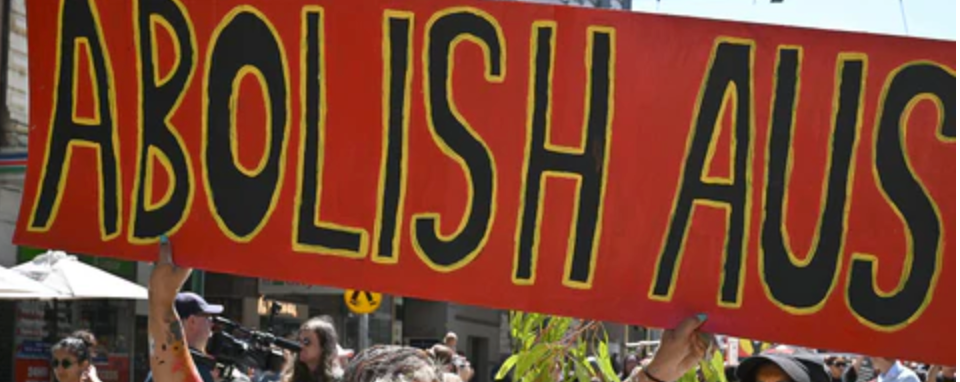
Day of Mourning
In contrast to the push to 'celebrate' January 26, many are calling for this date to be recognised as a 'Day of Mourning.' This stems from the 1938 protest where Aboriginal people publicly gathered to call out the injustice of this day. Today, the call for 'Day of Mourning' acknowledges that for First Nations peoples, January 26 is a day of remembering the pain caused by the invasion and colonisation. With the rise of Dawn Services and the increasing recognition of Frontier Wars and massacres, many are calling for this day to be a time of reflection, truth-telling, and education.
January 26 day represents the opportunity to shift the focus from a celebratory event to one of critical reflection and healing, honouring the ongoing struggles of First Nations peoples since invasion.
Renaming January 26 to a 'Day of Mourning' is an important act of decolonisation. It would provide an opportunity to focus on the continued impacts of colonisation on First Nations people, acknowledge the ongoing trauma of this legacy, and educate the broader public about the violent history that has been ignored for too long.
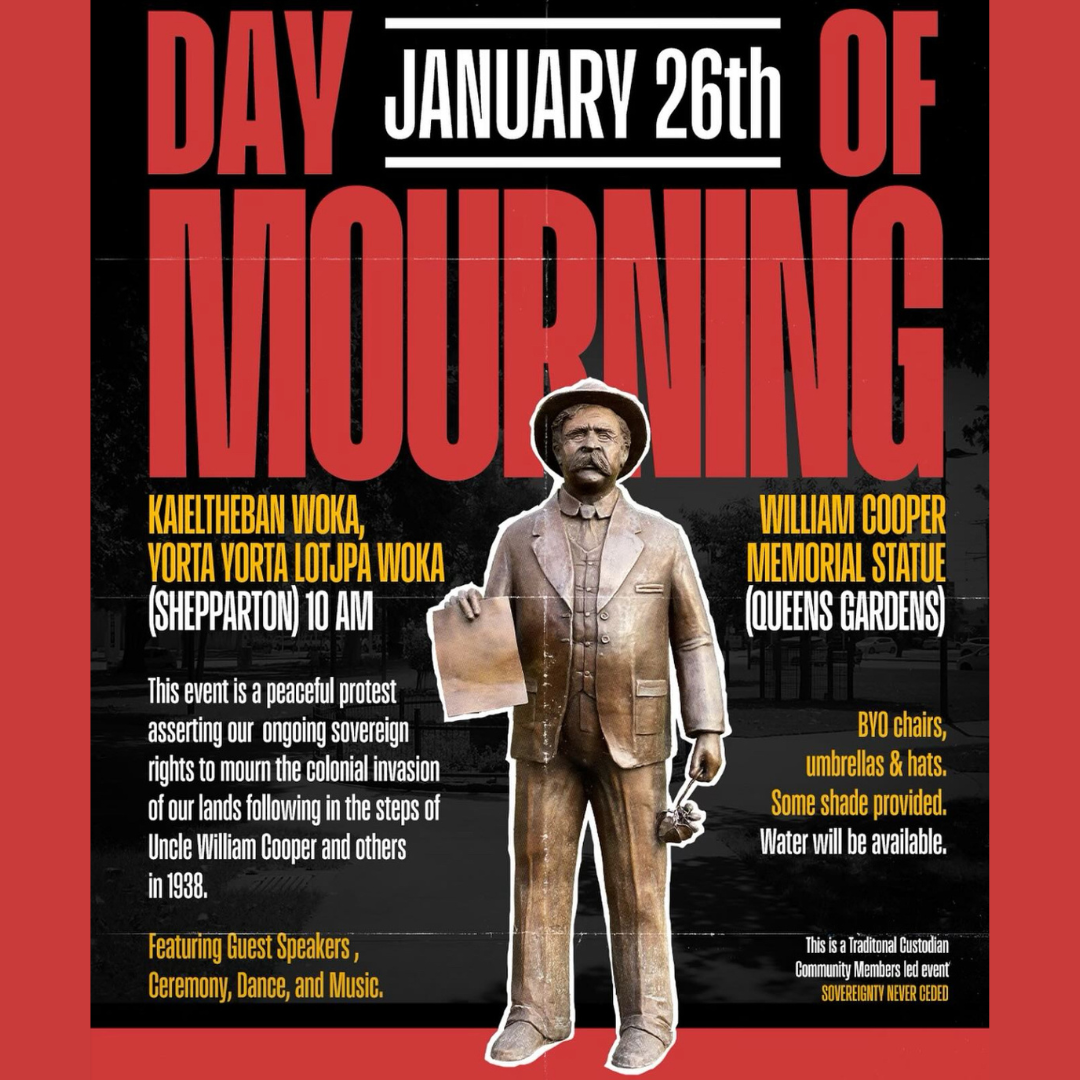
Business As Usual
Many who are disappointed by the lack of political action and leadership on this issue, have opted for a more personal approach: ‘business as usual.’ This mindset reflects a growing reluctance to engage with January 26 as 'Australia Day' at all. Instead of waiting for the government to act, people are choosing to treat the day as any other, going about their lives without the national holiday trappings.
This shift is being seen across industries, with businesses, sporting codes, and local councils increasingly choosing not to recognize the day in its earlier form. Some big corporations have stopped selling 'Australia Day' merchandise, avoiding all things related to the Australian flag or the words ‘Australia Day.’
Although we are seeing businesses backflip on these actions post-referendum, there is still a conscious effort to take back agency amidst the lack of government leadership, and not celebrate the day as a nation.
Working Australia Day
We understand that solidarity and allyship can look and feel different to everyone and substituting the 'Australia Day' public holiday is but, one way to show your support, but is it enough?
What you do on Jan 26 matters to First Nations people.
Substituting the Australia Day Public Holiday
What can you do if your values or cultural beliefs do not align with a Public Holiday?
The national conversation about when, and if we should celebrate Australia Day continues to rage. Jan 26, Invasion Day, Survival Day or Australia Day whatever you call it, can't be seen as anything other than a day of mourning for First Nation's Peoples.
There are some technicalities to be aware of, and we encourage an open dialogue with your employer.
Many Perspectives
We’re certainly not the experts, nor do we have the answers, but we care about this causes, and we are committed to elevating the voices of Mob. These are reflections of conversations that we are seeing in Communities all over the country, and we want to continue to amplify these voices.
There will always be many perspectives when it comes to the best path forward in social change and justice for First Nations Communities – and sso there should be. We need different ideas and angles to engage and foster different conversations with different groups, at different points in time in society.
What’s most important is shifting the mindset of a majority of people to see that January 26 has a painful and harmful legacy in this country that cannot continued to be ignored. The more people that are a part of this conversation, the better.
We invite you to contribute your thoughts and ideas, as we continue to listen, learn, and advocate for meaningful change.
If you’d like to share your thoughts, please leave a comment below!






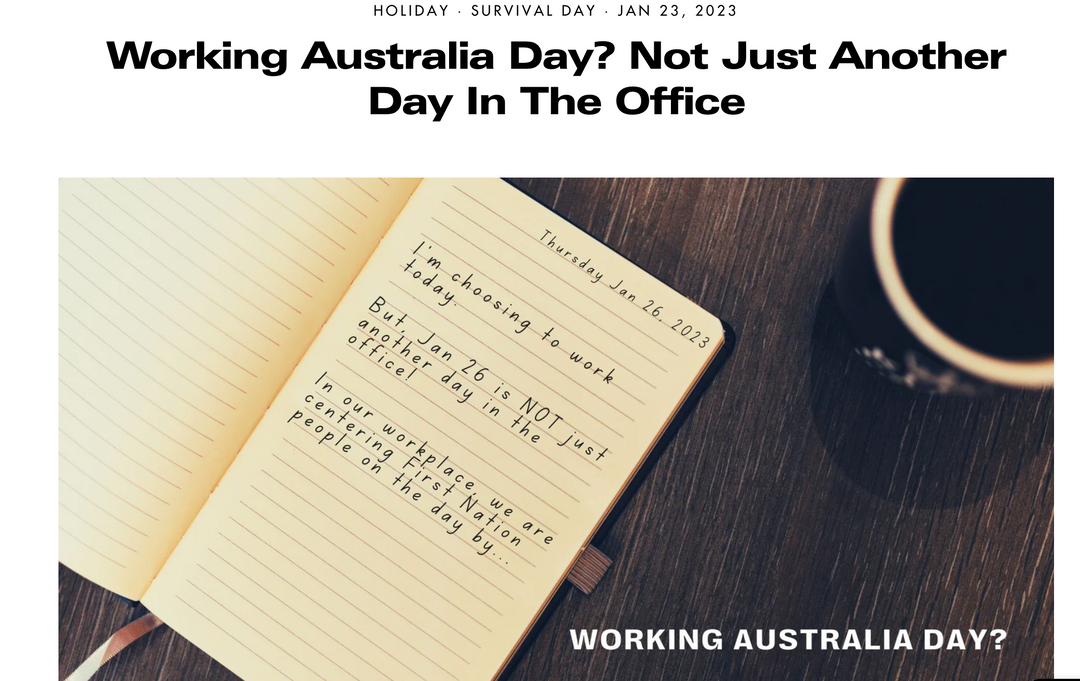
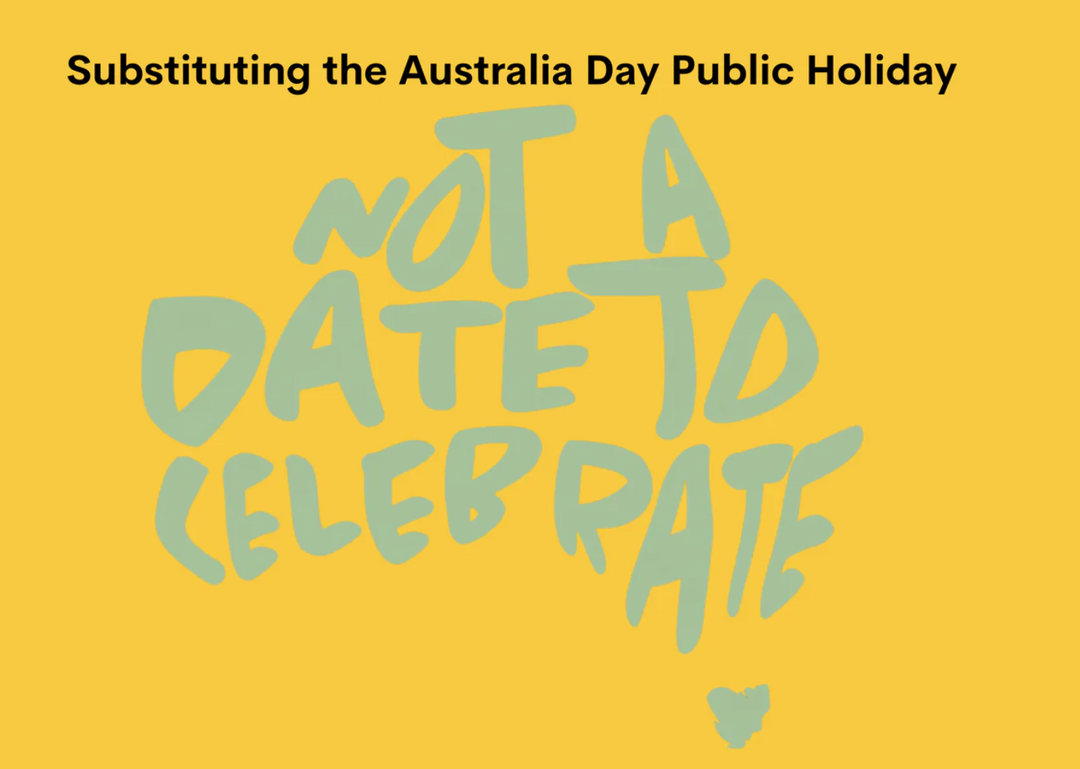





Leave a comment